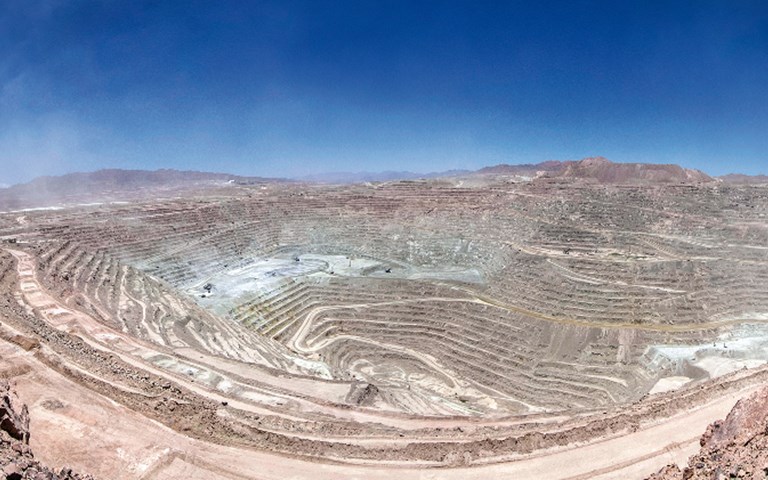BHP and Escondida's union reached an agreement through government mediation. Courtesy of BHP
Workers at BHP’s Escondida copper mine will vote on a new contract offer from the company over the next few days, potentially avoiding a repeat of last year’s 44-day strike.
BHP and the Chilean mine’s union reached an agreement through government mediation, the company announced yesterday.
“The company made an enormous effort to reach this agreement,” said Patricio Vilaplana, vice-president of corporate affairs at BHP subsidiary Minera Escondida. “We learned from previous processes, we were flexible and open to dialogue, and this agreement is the fruit of that attitude as well as of the disposition of Union N°1, which we appreciate.”
Neither BHP nor the union have disclosed details of the new offer.
Last year’s strike at the world’s largest copper mine reduced the operation’s annual output by 7.8 per cent and significantly disrupted copper markets. The union invoked a rarely used legal provision that allowed them to revert to their existing contract for 18 months and end the strike.
In early August, it seemed the mine and the union were headed for a similar standoff when workers voted to reject BHP’s offer of a US$18,000 signing bonus for each worker and a 1.5 per cent salary bump with increases for inflation, and said it would go on strike on August 6 if the company did not improve its offer.
The union was requesting a bonus equal to four per cent of dividends distributed to shareholders in 2017, which roughly equates to US$34,000 per worker, and a five per cent wage increase. The union represents more than 2,300 workers.
Related: Global economic growth, Chinese manufacturing stability promise strong 2018 for commodities
Chile’s labour laws allow for both the company and the union to call for between five and ten days of government mediation. The mediation period will be extended to allow the union to consult with its members, BHP said.
The copper price has dropped more than 20 per cent from its sustained peak in the past year, marking the beginning of a bear market.
Ryan McKay, an associate commodity strategist at TD Securities, said yesterday’s sudden drop was a combination of factors: the trade tensions between the United States and several other countries that have depressed prices since June; Turkey’s ongoing currency crisis; and a recent drop in Chinese export numbers caused by U.S. tariffs.
News of the Escondida deal was the “straw that broke the camel’s back,” he said. The potential for a strike had previously been keeping prices from “tumbling too far.”
McKay said he believes yesterday was the low point, and that heading into the U.S. midterm elections in the fall there may start to be some trade deals that will help increase prices. He pointed to overnight news that the U.S. and China will begin new trade talks as a good sign.
“If [trade deals] start to happen then we’ll definitely have seen the bottom here, and prices will start to trend higher,” he said. “The underlying fundamentals of copper are still good, it’s just getting beaten up a bit by sentiment.”



